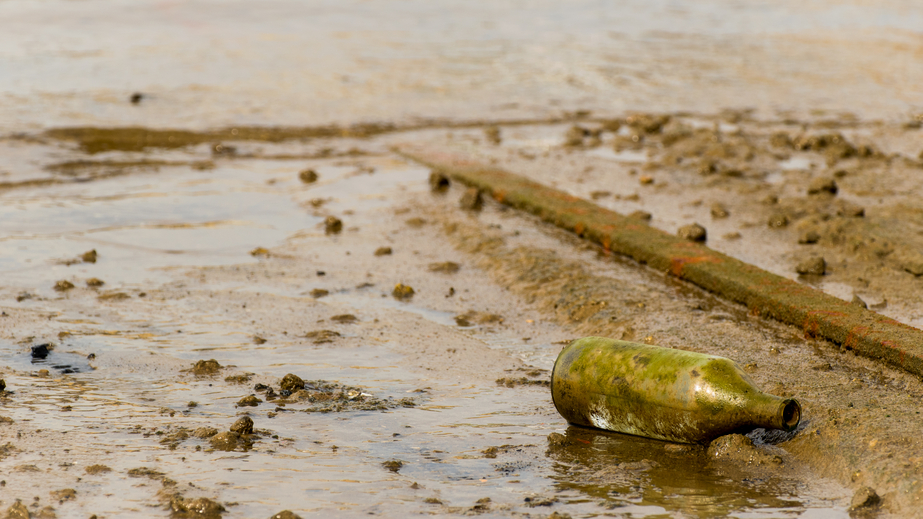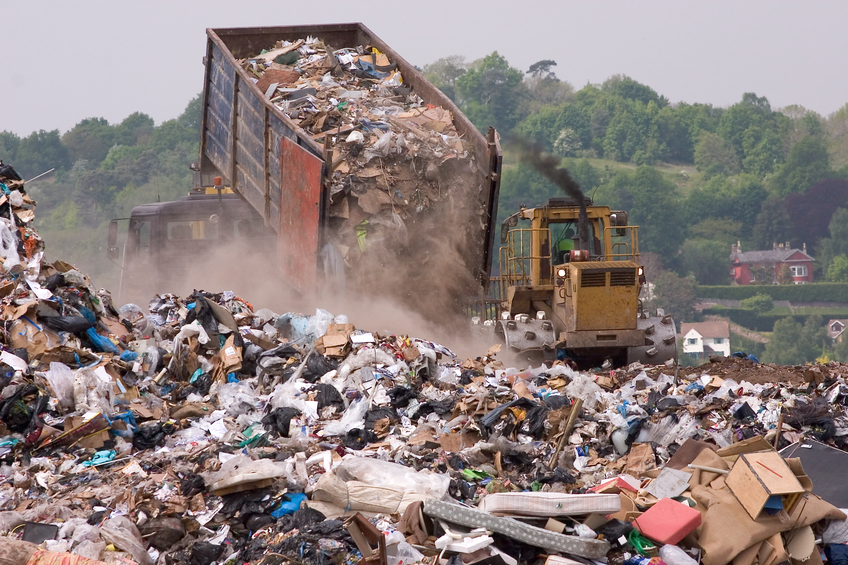New York Environmental and Ethics 18 PDH Discount Package 3
Courses in this Package
Landfill Gas Collection and Treatment Systems (C11-001)
Climate Smart Brownfields Manual (C05-028)
Advancing Sustainable Materials Management (C01-021)
Ethics, Professionalism and Disciplinary Actions: Case Studies (LE1-003)

This online engineering PDH course establishes criteria and guidance for landfill gas (LFG) collection and treatment systems. In addition, this course provides information about the design of systems used to monitor, collect, transport, and treat gas from municipal, industrial, and hazardous waste landfills.
LFG is produced by the biological decomposition of general solid waste refuse and other organic materials disposed of in the landfill. Its production typically begins within a year of waste placement, and may continue up to 50 years after landfill closure, with peak LFG production for any given disposal cell occurring within the first or second year of waste placement. The total LFG production rate increases as more waste is added to the landfill.
This course aims to provide information specifically relating to landfill gas collection systems in order to help landfill employees understand the available equipment and how and when to use them.
This 11 PDH online course is applicable to civil, environmental, geotechnical engineers, construction managers and landfill operators seeking an introduction to the operation and maintenance of landfill gas collection systems.
This PE continuing education course is intended to provide you with the following specific knowledge and skills:
- Understanding the purpose of landfill gas collection systems
- Learning how to design landfill gas collection systems
- Learning how to design landfill gas treatment systems
- Familiarizing with the operation and maintenance of landfill gas collection systems
- Familiarizing with the safety procedures and regulations of landfill gas collection systems
Upon successful completion of the quiz, print your Certificate of Completion instantly. (Note: if you are paying by check or money order, you will be able to print it after we receive your payment.) For your convenience, we will also email it to you. Please note that you can log in to your account at any time to access and print your Certificate of Completion.

This online engineering PDH course provides tools and strategies that can be implemented during the brownfield cleanup and redevelopment process. This includes consideration of projected climate change and potential impact on vulnerable populations when performing brownfield site assessments, evaluating cleanup alternatives, and planning for redevelopment.
Many members of vulnerable populations, including children, the elderly, low-income communities and tribal communities, live close to brownfields and other blighted properties. Brownfield redevelopment presents opportunities to reduce blight and improve the quality of life for vulnerable populations while mitigating the impacts of climate change.
To build resilience to climate change, members of the community (including local government, businesses, academic institutions, banks, community leaders, and residents) must pursue climate change adaptation as well as mitigation.
This 5 PDH online course is intended for environmental and sustainability engineers, as well as others interested in learning more about the tools, strategies, and considerations of brownfield cleanup and redevelopment.
This PE continuing education course is intended to provide you with the following specific knowledge and skills:
- Learning about the basic concepts of brownfield revitalization
- Understanding the importance of mitigation and adaptation for brownfield communities
- Understanding how to reduce climate impacts through greener demolition
- Learning about the importance of green remediation
- Familiarizing with brownfield redevelopment techniques
Upon successful completion of the quiz, print your Certificate of Completion instantly. (Note: if you are paying by check or money order, you will be able to print it after we receive your payment.) For your convenience, we will also email it to you. Please note that you can log in to your account at any time to access and print your Certificate of Completion.

This online engineering PDH course presents the facts and statistics about the generation and disposition of municipal solid waste (MSW) over time in the United States. It examines the disposing of waste in landfills, recycling, composting, and combustion with energy recovery.
Approximately 262 million tons of MSW was generated in the United States in 2015. Understanding how waste is generated and disposed of is important for managing scarce materials.
This report analyzes MSW trends in generation and management, materials and products, and economic indicators affecting MSW. It also includes a section on the generation of construction and demolition (C&D) debris, which is not a part of MSW, but comprises a significant portion of the non-hazardous solid waste stream.
This 1 PDH online course is applicable to civil, environmental and sustainability engineers and other technical personnel who are interested in gaining a basic understanding of waste management on the individual and household level.
This PE continuing education course is intended to provide you with the following specific knowledge and skills:
- Knowing where MSW comes from and how it is disposed of
- Understanding how to manage materials in order to maximize economic efficiency
- Learning when recycling, composting, and combusting with energy recovery should be used
- Familiarizing with the Sustainable Materials Management (SMM) process
Upon successful completion of the quiz, print your Certificate of Completion instantly. (Note: if you are paying by check or money order, you will be able to print it after we receive your payment.) For your convenience, we will also email it to you. Please note that you can log in to your account at any time to access and print your Certificate of Completion.

In this online engineering PDH course, ten case studies of actual enforcement actions taken by a state licensing board are presented. The cases have been selected to be representative of situations likely to exist in many states. Board procedures and the types of enforcement actions available are shown by a variety of cases ranging from a geotechnical engineer who produced (within one hour and without visiting the site) a soils report, to an engineer who was unable to document his PDH's during a board audit. The importance of being very careful about when to put "P.E." after one's name on a document also will become apparent.
Codes of ethics for engineers typically describe standards for professional behavior. The enforcement of those ethical standards that are inscribed into law lies with the licensing boards of state governments.
This 1 PDH online course is intended primarily for all engineers seeking to deepen their understanding of what constitutes ethical and professional engineering behavior and how such behavior is enforced by the licensing board.
This PE continuing education course is intended to provide you with the following specific knowledge and skills:
-
Familiarizing with the format of enforcement decrees issued by a state licensing board
-
Knowing the ten different types of licensing violations
-
Understanding the investigative process of the board, as it attempts to determine the validity of complaints brought before it
-
Learning about the types of enforcement actions available to the board
In this professional engineering CEU course, you need to review the course document titled, "Ethics, Professionalism and Disciplinary Actions: Case Studies".
Upon successful completion of the quiz, print your Certificate of Completion instantly. (Note: if you are paying by check or money order, you will be able to print it after we receive your payment.) For your convenience, we will also email it to you. Please note that you can log in to your account at any time to access and print your Certificate of Completion.